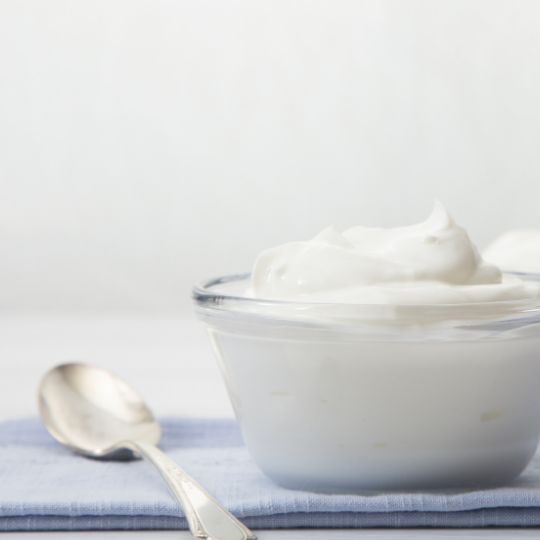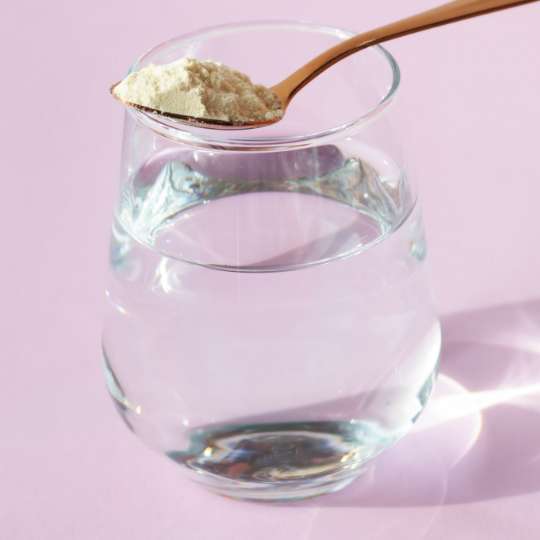

What is laughter therapy?
The concept of laughter therapy has its roots in an ancient practice called Qigong which translates as “life force practice”. It centres around the belief that there is a life force of energy that flows through all of us, which can be managed and moved through different practices. Not heard of Qigong before? Allow Chinese Medicine Practitioner and Founder of Hayo’u and Hayo’uFit, Katie Brindle, to fill you in.
“Qigong is an ancient practice, largely undiscovered in the West until relatively recently,” explains Katie. “It is the forerunner of Tai Chi and combines slow, considered movements, stretches, breathwork and mental engagement to engage the principles of good health. These principles are the smooth flow of circulation, consistent purging and nourishment of all cells and the strengthening of the five key organs.” In Chinese medicine the key organs are considered to be the heart, lungs, liver, kidneys and spleen.
Alongside things like stretches and mental exercises is laughter therapy, also known as laughter qigong, which is considered to be one of the best breathing exercises available to us.
“According to the Grand Master Mantak Chia, out of all of the thousands and thousands of breathing techniques, laughter is the best one,” says Katie. “It is said that one minute of laughter can boost the immune system for 24 hours.” Impressive, especially when you compare that to attending an hour-long yoga class.
“I laugh for a minute every single day and have noticed, through my own experiment, that after doing this for over two years I am much nicer and much funnier. I’m beaming away at everything because life just feels a bit sweeter – it's a really good technique to do.”
Can anyone do laughter therapy?
You don’t need to be practising qigong to dabble in laughter therapy – the beauty of it is that it’s completely free and anyone can try it.
“Laughter qigong is suitable, and beneficial, for anyone, regardless of age,” advises Katie. “Alongside lifting our spirits, giving us a sense of connection to those around us and generally making us feel better, it also has multiple healing benefits.”
“While laughter might not be able to “cure” specific ailments as such, what is clear is that laughter qigong is good for everyone, particularly people who are suffering with low mood, stress or even depression. The times we feel least like laughing tend to be the times when we need it the most, helping us to move blocked emotions.” For this reason, some people find that they start crying when they first do laughter qigong. This is not only natural, but very common, as both laughing and crying are forms of emotional release as your body clears suppressed emotions.
Ultimately, taking time out for yourself each day to be present and invest in your health is never going to be a bad thing. And who knows, you might have just found a new hobby.
What are the benefits of laughter therapy?
Believe it or not, we have only scratched the surface of the benefits that laughter therapy can have on our physical wellbeing. They include:
Improving the immune system
Chinese medicine holds the belief that our mental state of mind is intrinsically linked to the physical. So, however we are feeling or experiencing externally, will be mirrored internally, and vice versa.
“When we have negative thoughts or emotions, what happens is that the negativity can trigger chemical reactions that consequently have a harmful effect on the body,” says Katie. “They effectively bring more stress into our systems, which can then damage the health and effectiveness of our immunity. By contrast, when we have positive, uplifting thoughts we release neuropeptides, the chemical messengers that assist us in fighting stress. This can then help to avoid more serious, stress-related illnesses or health issues from developing.” As we have already mentioned, it is believed that just one minute of laughter can boost the immune system for 24 hours.
Relieving pain
Instead of instinctively reaching for the paracetamol next time you experience low-level pain, consider treating it with a chuckle instead. “When we laugh, our body produces endorphins,” says Katie. “These are the so-called “feel-good” chemicals, and the body’s natural painkillers. Endorphins can enable tense, painful muscles to relax and even help you to become slightly more tolerant of long-term pain. This can make laughter qigong an incredibly valuable component of pain management, on both a physical and mental level.”
Enhance mood
When we’re in a bad mood or difficult headspace, laughing can feel like the last thing we can or want to do. Which is exactly why we should give it a go. “With depression and anxiety increasing, mental health awareness should be very much part of our own self-care practices,” says Katie. “Laughter can help to lessen depression and anxiety, putting our negative thoughts and feelings into perspective, and helping us to feel happier. Which, in turn, benefits our overall health.”
Boosting lymphatic drainage
When we think of detoxing, it’s normally juice cleanses and herbal teas that spring to mind. But, according to Katie, laughter is a great way to detox the body too. “This is because when we laugh we take in more oxygen, causing our diaphragm to expand and sharply contract (especially if it’s a belly laugh). This pumping action stimulates our lymphatic circulation, which is unable to move on its own. This movement then helps to naturally drain toxins and waste products from the body before they can cause any harm.” It’s a similar principle to massage, where physical movements are used to encourage lymphatic flow.
Stimulating our organs
When we think about moving or massaging our bodies, we rarely think further than our skin and muscles. Yet, according to Katie, laughing can benefit our internal organs. “The physical act of laughter enhances our intake of oxygen-rich air which stimulates and nourishes our heart and lung energy, as well as increasing the endorphins being released by our brains. As all of our organs work together to keep the body balanced, this simple practice has a knock-on effect of benefitting all other organs, as well as our muscles and tissues.”
Soothing tension
When we’re stressed, our bodies can take the brunt of the impact. Furrowed brows and tense, hunched shoulders are just two of the most common side effects. What laughter therapy can do, is help to release some of this pent-up tension. “Laughter can not only stimulate circulation and aid muscle relaxation, which can help alleviate physical symptoms of stress, it can also soothe tension in the face and neck. As stresses lift, and any anger or negative feelings evaporate, our muscles soften how we look, as well as how we feel.”
Minimising stress
To-do list piling up alongside the washing basket and your inbox? These low-level stressful scenarios can all contribute towards making the bigger stuff harder to deal with. Laughter, as we know, can be the perfect antidote to trying times, which is why so many of us find humour in the most unexpected of places.
“Laughter can immediately relax us by firing up and then cooling down our stress response. As we laugh, our blood pressure initially rises and our heart rate initially increases, but then our blood pressure will drop, and our heart rate will slow, resulting in a relaxed and happy feeling. It is from this relaxed state that the body is able to start to heal.”
Laughter therapy techniques to try
Katie shares her techniques for approaching laughter therapy.
How to try laughter therapy alone
If you’re not among family and friends and still in need of a laugh, laughter therapy can absolutely be enjoyed alone. Consider approaching from one of the following angles:
Option 1
Settle down to watch your favourite comedy show on TV. If you’re not a big TV watcher, it could equally be a funny podcast or an amusing book. The benefits of laughter can be anticipatory, and often you’ll begin to feel better even before you start laughing.
Option 2
Don’t have time to commit to a whole episode? Even watching a snippet of your favourite comedian can bring a much-needed moment of laughter at any time.
Option 3
Spend time with your pet. Animals never fail to make us laugh. However bad a day we’re having, they will always raise our spirits and bring a smile to our faces. If you don’t have a pet, consider pet-sitting for a friend.
How to try laughter therapy in a group
Nothing beats having a good laugh with friends and family, and the infectious nature of laughing means this kind of therapy works brilliantly in a group setting.
Step 1
Get together as a group, whether it's with friends or family. You can be standing or seated.
Step 2
Set a timer for one minute.
Step 3
If the laughter isn’t flowing organically, ask one person to start. From there, it will be a case of “getting the giggles”, where the laughter begins to spread from person to person. Forget any self awareness and enjoy the moment. Interestingly, the body cannot differentiate between real and fake laughter, so you really can fake it 'til you make it.
Read, watch and be inspired...



